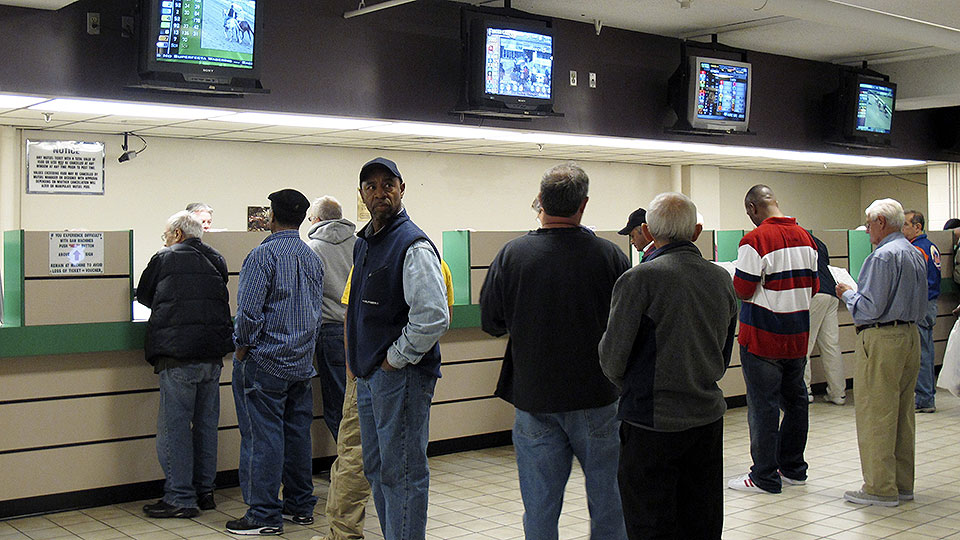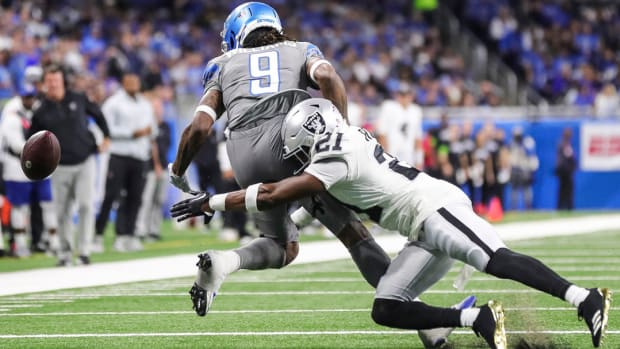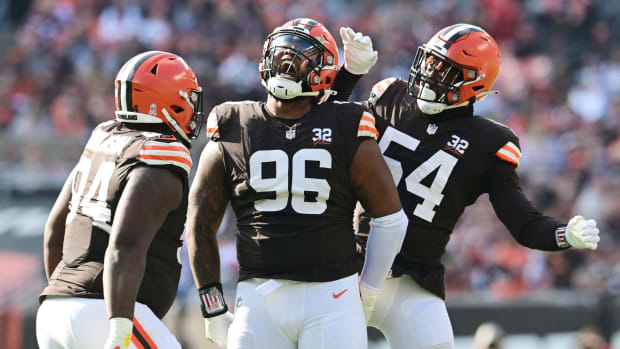
New Jersey sports wagering hopes facing uphill climb after hearing
Legal sports wagering in America could have a steep hill to climb after oral arguments Wednesday in a federal appellate court, where a New Jersey sports betting law faced tough scrutiny from 12 justices, potentially signaling the need for a new federal sports wagering framework.
The arguments pitted two former U.S. Solicitors General against one another, with Ted Olson arguing for New Jersey and Paul Clement arguing on behalf of the four major sports leagues and the NCAA. The two sides have been locked in a court battle with New Jersey over the wagering issue since 2012.
The sports law legacy of Justice Antonin Scalia
The 90-minute session at times resembled a star-studded event, with a packed courtroom abuzz to watch two of the nation’s leading appellate litigators take part in an intellectual duel. U.S. Courts of Appeal almost never grant “en banc hearings,” which refer to when all or most of the judges on an appeals court rehear an earlier decision by three of its judges. Yet, as any bettor would tell you, “almost never” isn’t the same as “never.” Last October the U.S. Court of Appeals for the Third Circuit granted New Jersey Gov. Chris Christie’s petition for an en banc hearing of his longstanding lawsuit with the leagues.
At the crux of Wednesday’s en banc hearing on the future of sports betting—and indeed the entire multi-year litigation—is whether New Jersey can implement the New Jersey Sports Wagering Law. This law seeks to repeal the state’s prohibitions against sports betting and also removes wagering restrictions on specific racetracks and casinos in New Jersey.
But New Jersey has been unable to execute this plan. A 1992 federal law called the Professional and Amateur Sports Protection Act (PASPA) prohibits 46 states from licensing, sponsoring or authorizing sports betting. New Jersey is one of those 46 states (Delaware, Oregon, Montana and most significantly Nevada were grandfathered out of PASPA). The sports leagues sued New Jersey, saying its wagering law violates PASPA. The only way New Jersey can overcome the federal ban is by convincing a court that the ban is unlawful as it applies to New Jersey’s plan.
New details revealed in Manning litigation with ex-Tennessee trainer
At first glance it may seem surprising that leagues would sue a state over its desire to allow forms of sports betting. Betting on sports increases interest in those sports. Sports league officials—especially NBA commissioner Adam Silver—have signaled a desire for Congress and President Obama to lift the federal ban on sports betting and adopt a regulatory scheme. Nevertheless, leagues, along with the NCAA, are categorically opposed to New Jersey’s plan. They believe if it was authorized by a court, it would make their leagues vulnerable to worrisome aspects of sports gambling, such as athletes and coaches potentially “throwing” games. A concern about the relationship between sports betting and the outcome of games separates sports betting from lotteries, slot machines, card games and other gambling activities that bear no relationship with sports and are subject to regulatory schemes.
While a victory for New Jersey would only directly affect the state, other places could benefit from it as well. Delaware, Pennsylvania and the U.S. Virgin Islands would be guided by the binding precedent created by the Third Circuit, and likely move forward with their own state-based wagering efforts. A victory for the sports leagues, on the other hand, would ensure the continuation of Nevada’s dominance over legal sports wagering and would squelch Atlantic City’s long coveted aspirations for sports betting enterprises.
With that backdrop in mind, Olson appeared to face a skeptical bench. The judges seemed less concerned with whether the state could repeal its own restrictions than they were with the unregulated nature of sports betting the repeal would lead to. Olson also partook in an ostensibly semantic yet substantively important argument over what it means to “authorize” sports betting.
“I think we’re headed to federal regulation, and that’s O.K.,” said N.J. Sen. Raymond Lesniak, the architect of New Jersey’s 2014 law. “Any state that wants [wagering] can have it. New Jersey is happy with that. There’s plenty of action to go around.”
Breaking down N.Y.'s investigation into NFL ticket sale practices
In order to get a piece of that action, the state must convince the judges that its proposed repeal of anti-wagering laws is not the same thing as an active authorization of betting, even if it would result in sports betting taking place in New Jersey. As explored more fully below, Olson on Wednesday emphasized that no elements of PASPA technically prevent New Jersey from repealing any gambling laws. For his part, Clement conceded that the state is free to repeal any existing state gaming laws. Yet Clement also argued that by demarcating where and how sports wagering can take place, New Jersey’s law implicitly authorizes a federally banned activity even if it doesn’t explicitly say so.
Key legal arguments in whether New Jersey can legalize sports betting
New Jersey faces an uphill battle in its argument that PASPA violates the Tenth Amendment by preventing the state from exercising its own powers. The Tenth Amendment is often cited in states’ rights arguments because it expresses that unless the U.S. Constitution delegates a legal power to the federal government, states reserve the right to exercise that power. Along those lines, the “anti-commandeering principle,” as it is sometimes called, ensures that states can decide how to address an issue in the absence of conflicting federal regulation. States do not want to be required—commandeered—into enforcing policies dictated by the federal government that are at odds with state policies.
Deflategate, one year later: The anatomy of a failed controversy
From New Jersey’s perspective, the Tenth Amendment should empower it to repeal a ban on sports betting. The state has premised this view in part by stressing the U.S. Constitution does not confer a right to the federal government to forbid a state from repealing a prohibition on sports wagering. In that same vein, Olson on Wednesday asserted that New Jersey is commandeered into using its own resources to enforce a federal ban on sports betting that the state clearly wants repealed. Indeed, Olson maintained that New Jersey’s plan is not to authorize an act in violation of the federal government but rather to repeal an existing prohibition. Clement rejected Olson’s portrayal of PASPA and maintained that New Jersey’s plan is indeed about authorizing sports betting, and only at specific locations, such as racetracks, rather than other locales.
Another key aspect judges could turn on is the so-called “equal sovereignty doctrine,” which guarantees each state that the federal government will treat all states equally. To be clear, this doctrine is not found anywhere in the U.S. Constitution—there is no “equal sovereignty” clause—but case law over the years indicates some support for its existence. New Jersey maintains that PASPA, by allowing four states to adopt sports betting laws and barring the other 46 from doing so, runs afoul of the doctrine. The leagues, in contrast, disagree and stress that the four states exempt from PASPA are treated differently only because they had already legalized sports betting in 1992—something New Jersey could have done but choose not to.
Unstated role of Daily Fantasy Sports in New Jersey’s litigation
While the ever-present question of daily fantasy sports’ legality didn’t arise in court on Wednesday, it is relevant to the broader issue of whether sports betting should be lawful. “I don’t see how you can be for daily fantasy sports betting and opposed to traditional sports betting like what exists in Nevada and what would be offered in New Jersey,” Joe Asher, CEO of William Hill US, the state of Nevada’s largest sports book operator, told SI.com after Wednesday’s hearing. “There’s no way you can be intellectually honest and be for one and not for the other.”
NBA, sports investment groups among those sued over DFS
For his part, Clement raised the issue of enabling private sports wagering between friends. When asked by the judges whether or not two friends wagering on sports would violate PASPA, Clement said it wouldn’t. “You could decriminalize it,” the attorney noted to the bench. He then cited an example of two friends wagering $1,000 not violating PASPA, while emphasizing that the federal law's purpose is only to prevent commercial wagering.
Outlook
It will likely be months before the Third Circuit issues its opinion. If the Third Circuit rules for New Jersey, expect a number of states to follow its lead and adopt legislation that permits some forms of sports betting. In contrast, if the leagues prevail—and, for the most part, the judges on Wednesday seemed supportive of the leagues’ arguments—New Jersey’s only remaining chance to implement the New Jersey Sports Wagering Law would be to successfully petition the U.S. Supreme Court. The Supreme Court, however, only accepts about 1% of cases for review and there’s no guarantee it would rule for New Jersey.
Observers of the litigation are skeptical the Supreme Court will play any role. “While the losing side in this case will surely ask the Supreme Court to review the forthcoming decision,” Florida-based gaming attorney Daniel Wallach told SI.com, “without a ‘circuit split’ [a difference of opinion on the same issue between two or more federal appeals courts], the Supreme Court is unlikely to take this case.”
No matter the outcome of NCAA, NFL et al. v. Christie, perhaps the best course of action would be if Congress reconsiders the intersection of law and sports gaming. Especially given the related controversy over whether DFSshould be legal, the time might be right for a federal reconsideration of sports gaming laws.
Michael McCannis a legal analyst and writer for Sports Illustrated. He is also a Massachusetts attorney and the founding director of the Sports and Entertainment Law Institute at the University of New Hampshire School of Law. He also teachesDeflategateat UNH, serves as the distinguished visiting Hall of Fame Professor of Law at Mississippi College School of Law is on the faculty of the Oregon Law Summer Sports Institute.
Will Greenis a contributing writer and video producer at Sports Illustrated. He covers college basketball, college football, daily fantasy sports and wagering.




































